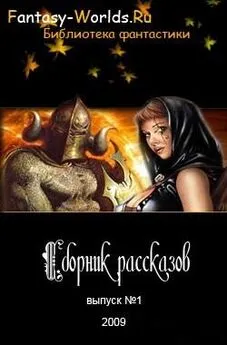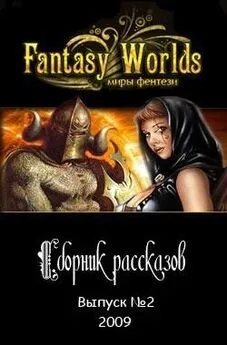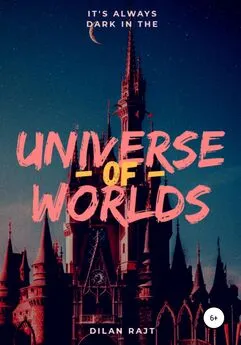Пользователь - WORLDS END
- Название:WORLDS END
- Автор:
- Жанр:
- Издательство:неизвестно
- Год:неизвестен
- ISBN:нет данных
- Рейтинг:
- Избранное:Добавить в избранное
-
Отзывы:
-
Ваша оценка:
Пользователь - WORLDS END краткое содержание
WORLDS END - читать онлайн бесплатно полную версию (весь текст целиком)
Интервал:
Закладка:
One of these others was General Bliss, a bluff and kindly old soldier who gave good practical advice when asked. Another was a veteran diplomat, Mr. Henry White, who owed his appointment to the fact that etiquette required that the Republican party should have representation on the Peace Commission. Mr. White was so old that the Republicans had forgotten him, but he was in the history books and nobody could question his credentials. He had been in Paris at the time of the Franco-Prussian War and the Commune, nearly fifty years back, and he liked to drive people around and show them the places and tell what he had seen; but he wasn't seeing very much now.
The fifth member was of a retiring nature, but that didn't prevent his suite from becoming the most frequented of all. Two naval yeomen in uniforms and white caps stood guard at the door, and in the anterooms you would see the great ones of the earth coming and going at all hours, and many cooling their heels, waiting in hope of an interview. The name of this commissioner was Colonel House. He was not a military man, but the kind known as a "Kentucky colonel" - although he came from Texas. He was a frail little gentleman of sixty or so, and had never enjoyed health enough to be a warrior, or even to engage in the turmoil of politics; he didn't like crowds and shrank from publicity as a mole from sunlight. What he liked to do was to consult and advise and persuade; he liked to sit behind the scenes and pull wires and manipulate the actors. Being wealthy, he could indulge in this hobby; he had made several governors of his home state, and then had picked out the head of a college as a likely "prexy" for the forty-eight states. He had promoted him and "put him over," and was now his friend and authorized agent in most of the peace negotiations.
He had come to Europe before the outbreak of the war. He had come more than once during the conflict, trying to work out ways to end it. He was gentle and unassuming, and never sought anything for himself; people compared him to a little white mouse - and right now the words of this mouse were backed by most of the money and most of the food in the world. America had financed the last year and a half of the war, and America must finance whatever peace there was to be. What did America want? What would America accept? The answer was: "See Colonel House."
So it came about that through the doors where stood the naval yeomen, polite yet impressive with their side-arms, came diplomats and politicians and journalists from pretty nearly every nation of the earth. In those anterooms you saw uniforms worthy of the most expensive grand opera production: gold and cream and scarlet, rose-pink, sky-blue. You saw civilian costumes out of the gorgeous East, Near and Far: burnooses, mantles, and togas, turbans, fezzes, and sugarloaf hats. You saw Koreans and Malayans, Kabardians and Lezghians, Buriats and Kirghiz, Kurds, Persians, Georgians, Azerbaijan Moslems, Assyrian Christians, and all the varieties of Syrians - Moslem, Druse, and Greek Orthodox. Had ever in the history of Texas a stranger fate befallen one of its sons than to be receiving this stream of day and night callers, and to know that his smile was a matter of life and death to their peoples?
II
To this Mecca of peace-seekers now came Professor Alston, bringing the tidings that he had established contact with certain of the extremely elusive Bolshevik agents in Paris. Might it be that this would offer to President Wilson and his staff an opportunity of sounding out the revolutionaries and judging the probabilities of success for any conference?
The little white mouse found that interesting. It was the sort of thing he liked to do. He pinned his faith upon quiet talks and understandings among key people. That was the way the Democratic party was run in Texas; that was the way a college president had been nominated for President of the United States; that was the way peace was now to be brought to Europe. When the details had been agreed upon, the results would be proclaimed, and that would be "open covenants openly arrived at."
Of course these revolutionaries couldn't come to the Crillon. Where had Alston met this painter? The professor described the room, and the Texas colonel smiled and asked if it would be possible to get some extra chairs into it. He said they would go that very evening, as soon as he could get away from a reception he had promised to attend. He told the professor where and when to call for him. They would say nothing to anybody about it; they would take along Alston's translator, who already knew about it. The colonel didn't speak French, unfortunately, and it might be that the Bolsheviks wouldn't know English.
A first-class thrill for a youth just embarked upon a diplomatic career. He was going to the top right at one bound! He was going to help with the most exciting problem of the conference; to have a hand in settling the destinies of a hundred and forty million people - and incidentally to shake the gory paws of those murderers, assassins, fiends in human form, creatures whom the resources of the English language were inadequate to describe. So Lanny had been hearing, and he pictured them as pirates with bushy black whiskers, and pistols and daggers in their belts. He hurried off to tell his uncle of the appointment and make sure the little white mouse wouldn't have to sit on the cot!
Uncle Jesse said he could borrow chairs from neighbors in the tenement. "We poor help each other out," he explained, with one of his wry smiles. He added: "Keep your eyes open, Lanny, and see if you can't learn something."
"Thank you, Uncle Jesse," replied the youth. "I'm learning a lot, really."
"It won't please your father," continued the other. "I've known him since before you were born, and I've never known him to learn anything. He's going to be an unhappy man, with the world changing as it is."
Lanny wouldn't discuss his father with this uncle whom he didn't like. But he went off thinking hard, and wondering: Was Robbie really narrow-minded and set in his opinions? Or was this Bolshevik propaganda?
III
That evening Alston and his secretary strolled to the Hotel Majestic, residence of the British delegation, where a grand reception was being held. Promptly at eleven the colonel emerged, and a sturdily built man in civilian clothes fell in behind him and accompanied him to his car, and, after the others had got in, took his seat alongside the chauffeur. So far as Lanny knew, this man never spoke once, but he watched, and no doubt had a gun handy.
Huddled into one corner of the car, Lanny listened to the conversation of one of the most powerful men in the world. The youth was intensely curious about this soft-voiced and kind-faced little person. What was it that had lifted him from obscurity in a region of vast lonely plains inhabited by long-horned cattle which one saw in the movies? Lanny gathered that the Texas colonel's leading characteristic was a desire for information; he went right to work to pump Alston's mind, asking him about all the problems on which he had been specializing. Sooner or later the little white mouse might have to settle them. He had a way of shutting his eyes for a few moments when he wanted to impress something upon his memory. Presently he was asking questions about Georgia - not the state in America, whose problems had been settled long ago, but the portion of Russia in the Caucasus mountains, famed for its lovely women.
"Those people have one great misfortune, Colonel House," remarked the professor. "They are sitting on one of the world's great oil deposits."
"I know," said the other. "It may explode and blow us all to kingdom come." He asked many more questions, and then said: "Do you suppose it would be possible for you to look into this matter and let me have a report?"
"Why, I suppose so," said the professor, both surprised and pleased, "They've got me loaded up with work already, though."
"I know; but we all have to do more and more. This Georgian business complicates the Russian problem, and we'll have to find a way to settle it. What do you say?"
"I am honored, of course."
"Perhaps we'll have a committee and put you on it. I'll have to put it up to the President."
So fate gave another turn to Lanny Budd's destiny. He was going to meet the mountaineers of the Caucasus and learn about their manners and customs - but not their lovely women, alas, for they hadn't brought any of these to Paris.
IV
There were three Russians in the tenement room when the Americans entered; at least Lanny supposed they were Russians, but he discovered that one was a Frenchman and another a Lett. He had been sure they would be big, bewhiskered, and fierce; but he found that only the Frenchman had hair on his face, the black beard trimmed to a point of which you could see thousands on this Butte Montmartre; he wore glasses on a black cord and his face was abnormally pale - he was a journalist who had served a term in prison for opposition to the war. The Lett appeared to be some sort of workingman, and was smooth-shaven, blond, and quiet. The Russian was a scientist, not much bigger than the colonel from Texas; he had spent several years in Siberia and his fingers trembled as he lighted the cigarettes which he smoked with great rapidity.
Only the Frenchman knew English, so the conversation was carried on largely by him. The Russian knew French, and the Lett knew Russian; there was a good deal of whispering back and forth, and when the conversation in English was going on, the other two Bolsheviks listened with a strained expression, as if they could understand by trying harder. They were obviously anxious. They, too, knew that they were in the presence of one of the most powerful men in the world.
Lanny helped the Frenchman with a word now and then, and sometimes asked him in French just what he was trying to say. The Russian, who was apparently their "big man," became impatient at the English conversation, and moved his chair behind Jesse Blackless and whispered for him to repeat in French what was being said. So Lanny, who sat next to his uncle, would hear English with one ear and French with the other, which kept his mind on the jump. However, he got his impressions, and the first was that these seemed like decent fellows in serious trouble; it was hard for him to believe that they had been committing the crimes that his mother's fashionable friends had told about. Afterwards, when he talked over his impressions with his chief, the idea was suggested to him that in civil wars it is often the most earnest and conscientious persons who do the killing.
One thing was certain: the Bolsheviks weren't going to make any of what Professor Alston called "stump speeches." Presumably they had talked it over in advance and decided to lay their cards on the table. They had no authority to speak for their government, and no way to communicate with it quickly; but they were certain that it wanted peace, and would be willing to pay any price short of giving up their "workers' state." Just as they had gone to Brest-Litovsk nearly a year ago and given in to the power of the German armies, so now they would do so for the Allies. The Whites might keep what they held; there was land enough in the interior of Russia, and the workers would build their state and show the world what they could do; only they must have freedom to trade with the outside, so that they could get goods and repair their shattered industry.
They spoke without emotion of the sufferings of the Russian peasants and workers under the lash of the Tsar, and in the civil war now raging. They reported that Petrograd was starving; a hundred thousand persons had died in the past month, and not a baby under two was left alive. The Soviets wanted peace; they would meet the Whites anywhere, and accept any reasonable terms. They had again and again declared their willingness to pay off their debts to the capitalist nations, including the monstrous debt which the Tsar had incurred to arm their country in the interest of French militarists and munitions makers. Poor as they were now, they would pay the interest in raw materials. Lanny was surprised by this, for the French newspapers were incessantly repeating that the debt had been repudiated; this was the reason for the French clamor for the overthrow of the Soviets. "You know what our newspapers are," said the Frenchman, shrugging his shoulders; "our reptile press - I worked for it until my soul was poisoned."
Читать дальшеИнтервал:
Закладка:




![Галина Романова - Лицензия на happy end [litres]](/books/1058996/galina-romanova-licenziya-na-happy-end-litres.webp)
